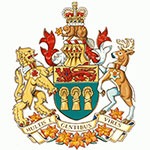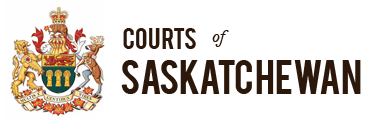What if I don't have a Lawyer?
Court of Appeal | SaskatchewanCourts of Saskatchewan
WHAT IF I DON’T HAVE A LAWYER?
Court of Appeal

INTRODUCTION
Representing Yourself
Legislation, Rules & Forms
Links &
Downloads
CIVIL GUIDEBOOKS
Appealing Civil or Family Matters
CRIMINAL GUIDEBOOKS
Appealing Criminal Matters
DETERMINING TIME PERIODS
Expressed in Number of Days
The information found on this website and in the Guidebooks is not a substitute for legal advice.
INTRODUCTION
REPRESENTING YOURSELF IN THE COURT OF APPEAL.Introduction to Representing Yourself in the Court of Appeal
It is best for a person appealing or responding to an appeal in the Court of Appeal to be represented by a lawyer. Having said this, an individual may choose self-representation the Court of Appeal.
If you’re representing yourself in the Court of Appeal, you’ll need to learn about the court system and specific procedures in the Court of Appeal. This website can help you.
Access the following information to learn more about the Court of Appeal for Saskatchewan’s processes and how you can prepare your case:
LEGISLATION, RULES & FORMS
LINKS & DOWNLOADSThe practice and procedure of the Court of Appeal is governed by legislation and decisions of the courts.
Procedure in civil matters is governed by The Court of Appeal Act, 2000, The Court of Appeal Rules (Civil), practice directives and case law.
Procedure in criminal matters is governed by the Criminal Code, The Court of Appeal Criminal Appeal Rules (Saskatchewan), practice directives and case law.
Other statutes and rules may govern in specific situations, such as appeals from administrative tribunals.
Provided below are links to various materials. These links are not official versions and may not be current. In the event that there is a question about the content of anything available through a link below, the official version takes precedence.
CIVIL
CIVIL GUIDEBOOKS
APPEALING CIVIL OR FAMILY MATTERSCIVIL & FAMILY MATTERS
Civil law – as opposed to criminal law – is the area of law that deals with disputes between people or organizations. Family law issues are included under civil law, along with many other subjects such as disputes about contracts, estates, property, commercial ventures, law applied by administrative tribunals (like the Automobile Injury Appeal Commission or the Saskatchewan Labour Relations Board), and torts (a wrongful act, like trespass or medical malpractice).
Parties may have a civil matter heard by a lower court or tribunal. The party who lost the case may want to have that decision reviewed by a higher court in the hope that it will be reversed or changed. In such cases, an “appeal” is made to the Court of Appeal. To start an appeal, the appellant (the party appealing a decision from a lower court or tribunal) files (a) an application for leave (permission) to appeal (where permission is required) or (b) a notice of appeal, in the Court of Appeal registry office. There are other steps in the appeal process, and these guidebooks will explain these steps and show you the forms you must file.
Not every court decision can be appealed. An appeal is not a new trial. There are no witnesses or juries. You cannot present new evidence to the judges hearing the appeal (except in special circumstances). The order that you are appealing is not necessarily stayed (stopped) just because an appeal is underway.
The Court of Appeal judges will not change the decision under appeal just because it seems somewhat unfair or they might have decided the matter differently. There must be a legal reason for them to intervene. You must show that the decision is incorrect because the decision-maker made a mistake in understanding the facts of your case or in applying the law that applies to your case. Even if a mistake was made, you must also show that the mistake significantly affected the outcome of your case.
The minimum and a usual number of judges who will hear an appeal is three. On rare occasions, where an appeal is very complex or important, five or seven judges may hear an appeal. At the hearing, the judges will consider presentations made by both parties.
A corporation must be represented by a lawyer for all matters before the Court of Appeal. If you are an individual, you do not have to be represented by a lawyer to appear in court. But, if you represent yourself in court, it is wise to first meet with a lawyer and have them explain the law to you and learn the best way to present your appeal. The lawyer can also explain your chances of winning or losing the appeal. The staff in the Court of Appeal’s registry office, including the registrar, can explain the appeal process to you but this procedural guidance is not a substitute for legal advice.
You should be aware that the court usually orders the party who loses an appeal to pay costs to the other party. Costs for an appeal can amount to hundreds or, in some cases, thousands of dollars. This is on top of any other fees or costs you must pay for each step in the appeal process.
APPELLANT GUIDEBOOKS & MATERIALS
RESPONDENT GUIDEBOOKS & MATERIALS
CRIMINAL GUIDEBOOKS
Appealing Criminal MattersCRIMINAL MATTERS
Both the Provincial Court of Saskatchewan and the Court of King’s Bench for Saskatchewan hear criminal cases. The Court of King’s Bench generally hears cases involving more serious crimes, like murder and bank robbery. Either the offender or the Crown (the prosecutor) may decide to appeal the decision of the trial court. The Court of Appeal hears appeals from criminal cases in the Court of King’s Bench, and from the Provincial Court if they involve indictable offences.
The appellant may appeal the court’s verdict (guilty or not guilty) or the decision on sentencing. Appeals are often misunderstood. An appeal is not a new trial. There are no witnesses or juries. You cannot present fresh (new) evidence to the judges hearing the appeal (except in special circumstances). The order that you are appealing is not stayed (stopped) just because an appeal is underway.
The Court of Appeal judges will not change the decision under appeal just because it seems somewhat unfair or they might have decided it differently. You must prove that the decision is incorrect because the judge made a mistake in understanding the facts of your case or in applying the law that applies to your case. Even if a mistake was made, you must also show that it affected the outcome of your case.
Your appeal will usually be heard by a panel of three judges. Both parties will have an opportunity to present their case.
You do not have to be represented by a lawyer to appear in the Court of Appeal. But, if you represent yourself, especially on a serious criminal matter, it is wise to first meet with a lawyer and have them explain the law to you and learn the best possible way to present your appeal. The lawyer can also explain your chances of winning or losing the appeal.
The guidebooks in this section will help you appeal a conviction or sentence or respond to an appeal by the Crown.
APPELLANT GUIDEBOOKS
RESPONDENT GUIDEBOOKS
Determining Time Periods
Expressed in Number of DaysYou measure the time period counting the number of business days or “clear days” between two events, not including the first or last day. For example, three days before a Wednesday chambers date is the Thursday of the previous week (ie., you do not count the Thursday but count Friday, Monday and Tuesday (do not count Saturday or Sunday, as they are not business days or the Wednesday chambers date).
If the time period is expressed as “within” a certain number of days or simply as “days”:
You measure the time period by counting the number of days between two events, not including the first day but including the last day. For example, if a document must be filed 15 days after April 1st, it must be filed on or before April 16th (ie., you do not count the first day – April 1st – but you do count the last day – April 16th).
HELP GUIDE
Representing Yourself in the Court of AppealNot sure of the definition of a word?
Check out the Legal Glossary.
Where can you find Legal Advice & Information?

